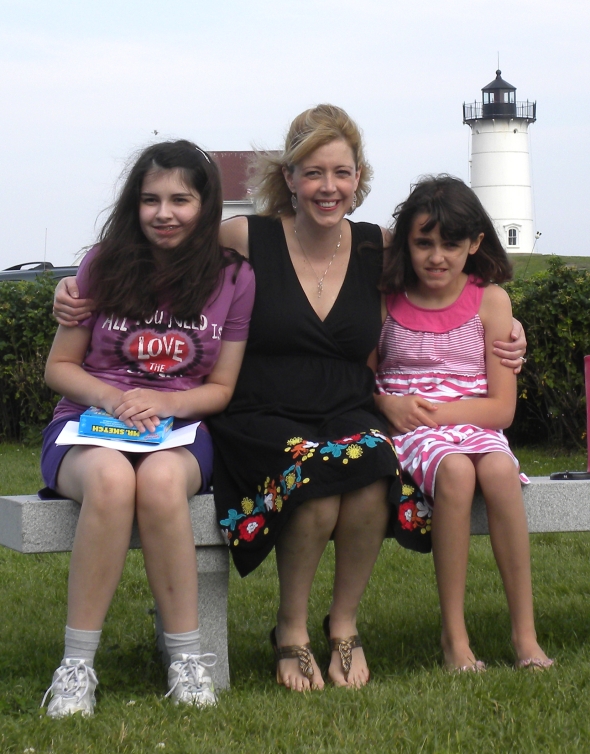Eileen Riley-Hall is the mother of two teenage girls on the Autism spectrum and the author of the new book, Parenting Girls on the Autism Spectrum. She is a high school English teacher at an inclusive public school in New York State, USA, and has worked with special needs students from preschool through to high school, in various settings, for over 25 years.
Here, she reflects on the unique challenges that girls on the spectrum face, and the joy her daughters have brought to her life.
What have you learned from having daughters on the spectrum?
I have learned so many things from my daughters, it is hard to distill those lessons into a few words. The main thing I have learned is that every human is beautifully unique, and so much more than a one word diagnosis. My girls are complete and complex human beings, and autism is just one aspect of who they are. I have also learned how to accept life as it is, and find the joy in what I have, rather than always wishing for things to be perfect or better. My daughters have also amazed me with their courage; they try so hard and work so diligently at everything they do. And as I am sure all parents learn from their children, my girls have taught me that true love can have no conditions.
What is the best thing about having daughters on the autism spectrum?
Having daughters on the spectrum has made me a better parent. I really think about my parenting, and I understand that my role is to help my girls develop into the best people they can be. It is not about me, and what I want for them. It cannot be about ego, and I think that is a valuable lesson that parents of children with special needs learn early on, but one that all parents need to learn. I think to be a good parent it is so essential to understand that your children are separate people from you with their own goals and purposes, and your job is to support them in their pursuits. Having daughters with challenges has helped me focus on what is best for them as individual people.
I also love that my girls are especially sweet. They are honest and candid, and they accept people just as they are. Because they are not as attuned to subtle social nuances, they do not judge based on superficial things, but look for real kindness in their friends and classmates. They are open and earnest in their feelings and always genuine. What a rare and sweet thing in the world today!
Do you think girls on the autism spectrum have different needs to boys on the spectrum?
Absolutely! Girls on the spectrum are still girls, no matter what challenges they face. And everything is different for girls: anxieties, hopes, expectations. I think girls in general face enormous pressure to fit into a very unforgiving model of what they should be, and for our girls those ideals can be even harder to fulfill. Even though we may know those images portrayed in the media are false or unimportant, they still affect our girls. Our girls still want to be pretty, have friends, and feel validated by the world. Given how hard typical girls can be on each other, those challenges can seem daunting for our girls. However, there are ways to help our girls and ensure that they feel good about themselves just as they are in the process.
What is the most important message that you hope readers will take away from the book?
The most important message is one of hope: When you have a daughter on the spectrum life will be different, but it can still be wonderful, and your daughter will be amazing. I want parents to take a breath and know they can do it. It doesn’t take magic, just work, time, and a lot of love. Autism is a just a word; it does not define a whole person. Girls on the spectrum possess charm and personality and potential. A diagnosis is not a prophecy, just a starting point to give you direction. Your daughter will likely accomplish many things that may now seem impossible to you. I know that from first-hand experience. So it is so important to stay positive and keep encouraging and believing in your daughter.
Copyright © Jessica Kingsley Publishers 2012.
